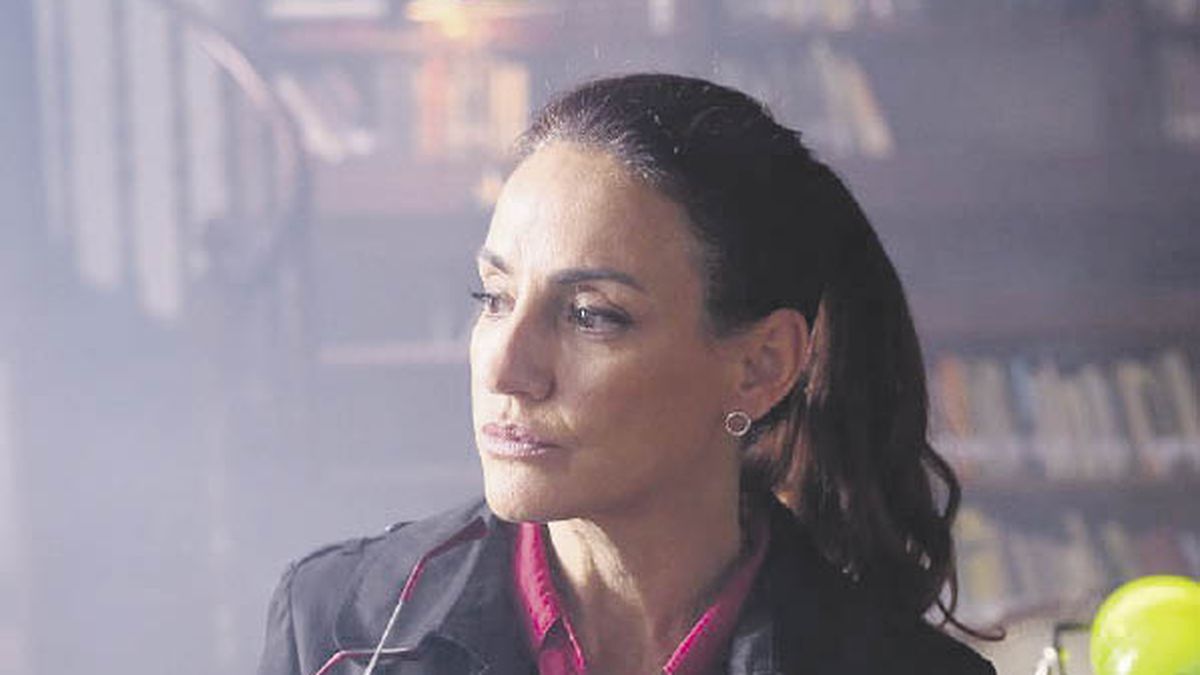Journalist: They approach adolescence in a different way from what local fiction did until now. Were they inspired by “Sex education”, “Euphoria” or “13 reasons why”?
Diego Palace: The idea began in 2017, the platform boom was just beginning and we wanted to continue in the police as in our previous series, but changing the ages. We focused on the adolescent segment and looked for topics that were on the agenda, such as the party on the last first day, which, although it is local, also encompasses excesses, a very recurring theme in movies and series. In Argentina there had been experiences with fiction for teenagers in the ’90s with Cris Morena, and we wanted a record associated with the adult world to broaden audiences. There is something of “Euphoria” or the named series that is latent, but we do it from an Argentine perspective and escaping from costumbrism.
Q.: There is not much vestige of costumbrism in local series for platforms.
PD: Here we make a black police officer, that although in the talks with the authors we ask ourselves about the local police or the procedures that we know, this one is indebted to the French or American black police officer. It has points of contact with the series mentioned at a thematic, narrative level, there is an aesthetic search and the themes are interpersonal relationships, how the gaze of the other plays on adolescents, love, awakening, the aspirational, the worldview about parents and teachers, the private world, all spun by the detective who makes up Eleonora Wexler and who investigates the crime of the teacher most loved by everyone at that party.
Q.: What caught your attention when you investigated the adolescent world?
PD: That the excesses start at a younger age. Of course it is a fiction without lowering the line, this is a clipping, a story, but it takes elements of reality without questioning them. We fed on what the adolescent actors had to say about their current world, we were open to their suggestions if they saw that the texts were not said the way they would say them. My adolescence was different, without social networks, our aspiration was the French May and the conversation about Bertolucci’s films. The kids today do not have a univocal view, perhaps the issue of gender or ecology is present, and in the series the dialogue between two different generations is seen.
Q.: How much is obedience to algorithms when submitting a series to a platform?
PD: The current context enables new voices of authors, we have four writers and we are rotating. We work with new people who open our minds. This supposed tyranny of the algorithm does not condition us because every time we work on a project it takes a long time to develop, and meanwhile the algorithms also change. So we continue to trust intuition, we have the series that we choose to do on the air. In the TV before, not so much time was invested, it was more immediate, today the processes are longer, but I feel that it is a good time. You have to believe in the algorithm but also distrust it.
Q.: How did you build the detective plot, with flashbacks and parallel times?
PD: It has a narration in two times that are ten years apart and that are constructed in very different ways. The temporality is different, one goes backwards and the other the other way around, in the last chapter you can see how it all started. As for the aesthetics, we changed the palette, in “Post mortem” everything was very dark, here the tone of the series is more colorful, associated with the adolescent.
Q.: In a pandemic there was an explosion of platforms, what is it like to produce for streaming today?
PD: It is good that there has been this explosion, although in Argentina we are still a bit down. We have more to give but there is always a brake. We brought Spanish actors who ponder our cinema, their standard abroad is more recognized than inside. The same with the series, which are well received and of quality. One is built from the niche and expands afterwards. For something today on the platforms there are novels, longer series and remakes of classics. Fiction today is seen on platforms, on open TV there are only two, other things are seen on air.
Q.: How competitive is our country as a producer, since it is not an industrial country?
PD: To be an industry you have to have many resolved elements and we are not on that path. Yes, we are building, there is an idea of industry, there are chambers of production companies, unions, actors, there is a collective, but there is still no country project in that sense. We are far from Spain, Turkey, Mexico, where there are industrial and cultural policies. Of course there are opportunities but we have many other priorities as a country. It has to do with promotion and development policies, we went to film in Pinamar and there were incentives, that stimulates the economy, but they must be raised clearly, transparently and, above all, sustained over time.
Source: Ambito
David William is a talented author who has made a name for himself in the world of writing. He is a professional author who writes on a wide range of topics, from general interest to opinion news. David is currently working as a writer at 24 hours worlds where he brings his unique perspective and in-depth research to his articles, making them both informative and engaging.




